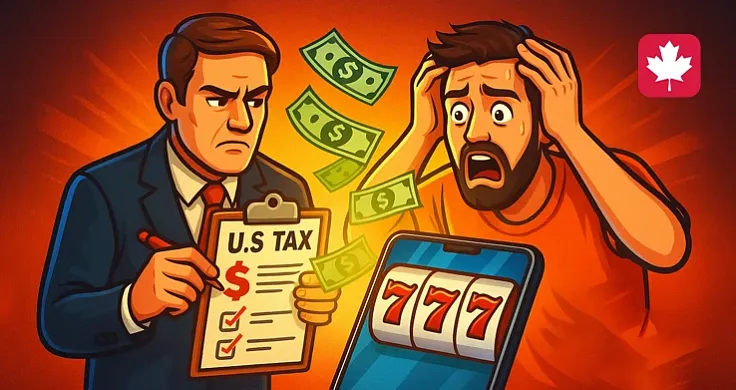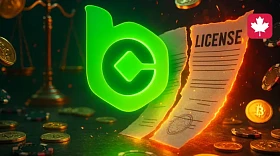
In the United States, a tax on losses has been approved: what awaits players from 2026
A new tax blow to US players: even the losers now pay
In the United States, a major change in tax policy is being prepared that could hit players hard, especially those who are professionally engaged in poker, betting or other forms of gambling. The Senate approved a bill called the "Big, Beautiful Bill" (OBBBA), and with it a surprise late amendment that effectively imposes a tax on losses.
If the document is not revised, from 2026, players will only be able to deduct 90% of losses from their winnings. And this means: even if the player did not make a profit, but played to zero, he will still pay tax. Yes, you heard it right – you played at zero, and you pay the tax.
What does this mean in practice?
Previously, the tax in the United States on winnings was calculated based on net profit: you won $100,000, but lost the same amount, which means that the profit is zero, and you do not need to pay tax.
From 2026, the scenario will look different. Suppose:
- Won: $100,000
- Loss: $100,000
Previously, tax = $0.
Now you can deduct only 90% of the loss, that is, $90,000. It turns out that the tax office believes that the player has a profit of $10,000, on which he must pay tax.
This approach turns even a zero session into a loss-making one — the player will pay taxes on non-existent income.
Who is promoting this idea?
The amendment was sponsored by Senator Mike Crapo and supported by the Treasury Department. According to their logic, this will help reduce tax schemes and "close loopholes".
Almost the entire gambling industry is against it. Especially striking are:
- Las Vegas Representatives
- Nevada Representative Dina Titus
- Circa & Golden Gate Casino
- Player associations
They call the amendment absurd and unfair, pointing out that it hits honest players who are already risking their money.
Linked materials
What's next?
The law must still go through the House of Representatives, where, perhaps, they will try to remove or soften the amendment. It is not yet known whether it will be possible to make changes. Donald Trump said that he would like to sign the law before July 4, but he himself admitted that this is unrealistic.
If the law remains in its current form, a completely different tax reality will begin for all players in the United States from 2026.
Possible consequences
- Professional players will pay taxes even with losses - this makes the "game for a living" model itself unprofitable.
- Players will begin to go offshore en masse - with less taxes and without unnecessary control.
- Platforms licensed in the United States will lose part of their audience and revenue.
- Government agencies will lose taxes and control over the segment, as everything will go into the gray zone.
- Even the average player can fall under tax pressure if he does not take into account the new rules.
Inference
The U.S. tax system seems to have decided that the losers are also a cash cow. Instead of the logical "income tax" model, it is proposed to collect money even from those who are already left with nothing. If the amendment remains, the United States may lose an entire industry - players will simply go to a place where they are not considered fools.
Professional bettors and bettors in the United States should closely monitor the development of the situation and, perhaps, think through new strategies in advance... or new jurisdictions.




celese Haha, classic! First they screwed over the players, then the license turned out to be fake, and now they’re trying to undo everything. A total circus. Yeah, everything will just get bought. They’ll pay whoever they need in Curaçao and get a new license. Money rules everything, especially in this industry.



Mangarin4ik The section about how casinos fire VPNs is a gun. I've never thought about WebRTC and the time zone. Author, thank you, you may have just saved my next deposit.




































That's why I love Canada and the UK – there is still common sense there.
Well, at least honestly - we need money, we squeeze it out of everyone. Even from the losers.
It's as if a business pays tax even at a loss. What nonsense.
I've been in poker for 20 years — and I never thought that I would have to pay from the minus. America, are you okay?
Let them pay their own taxes.